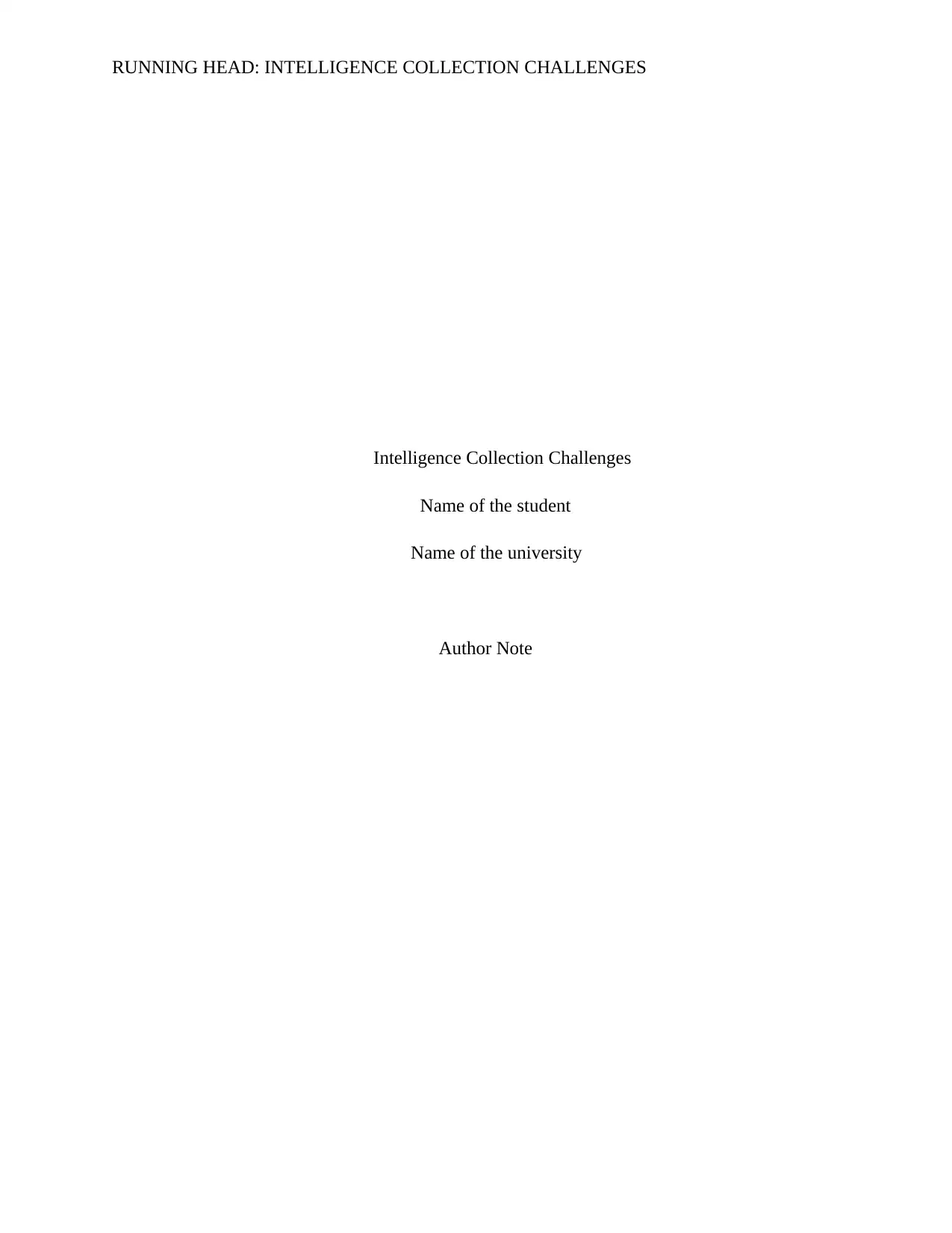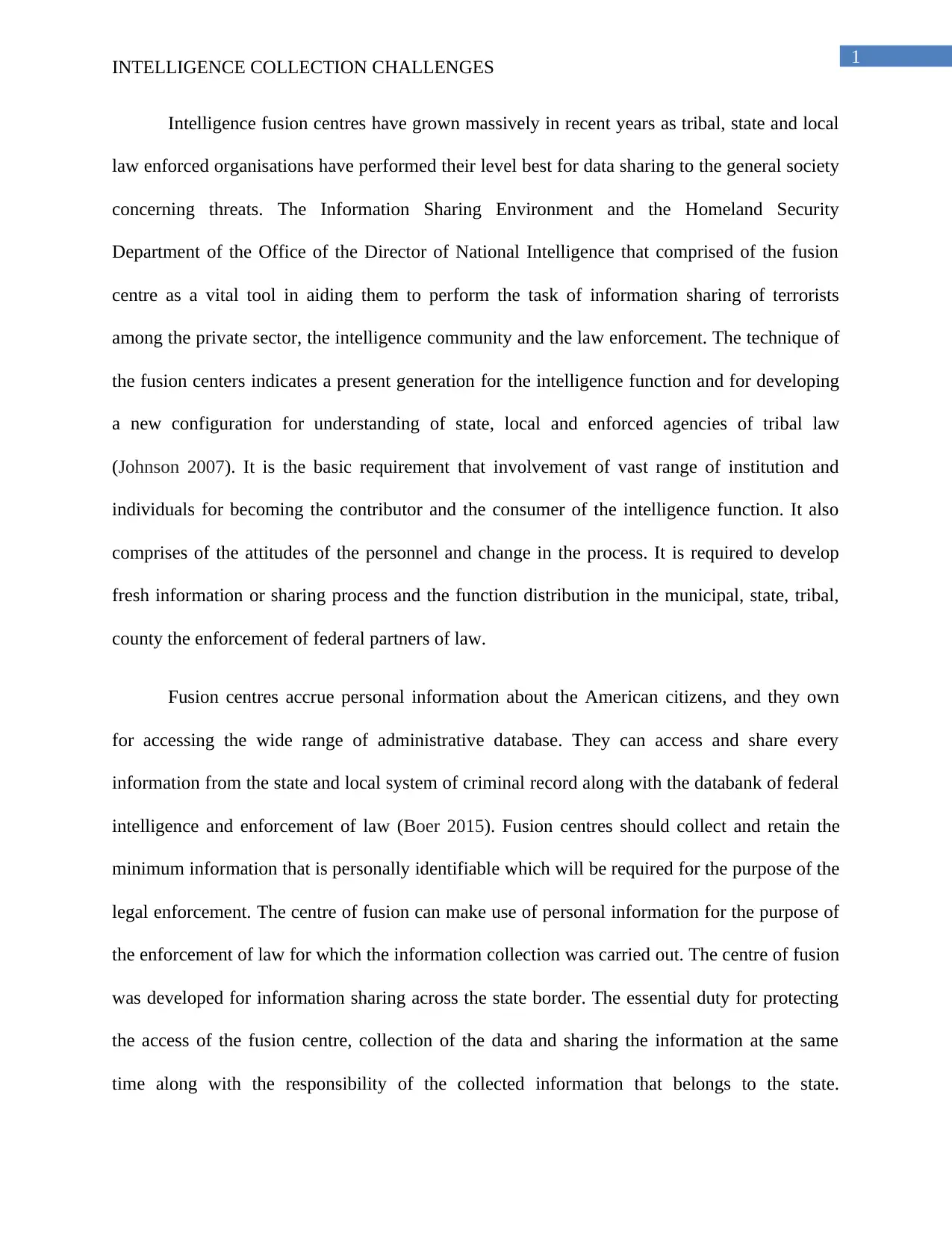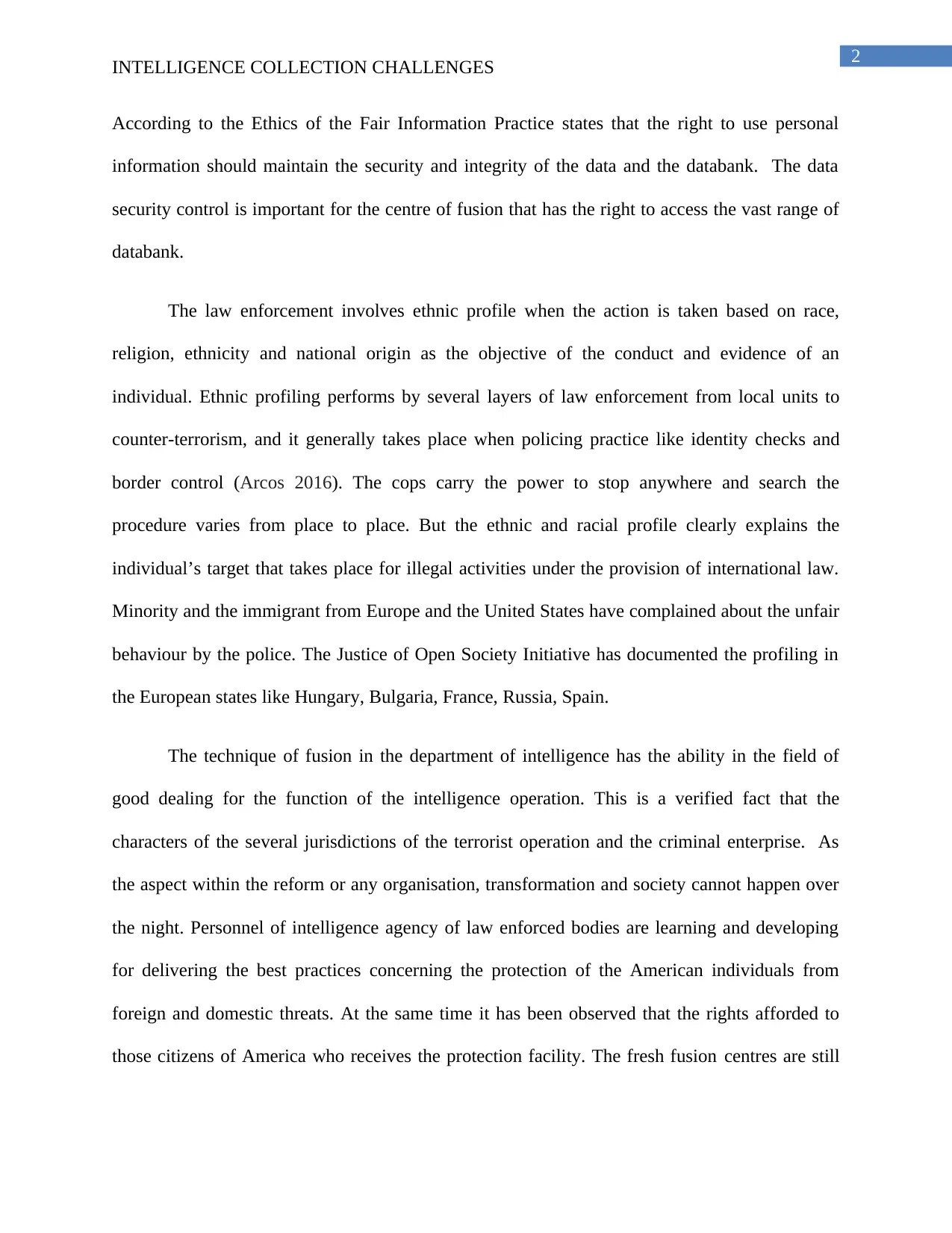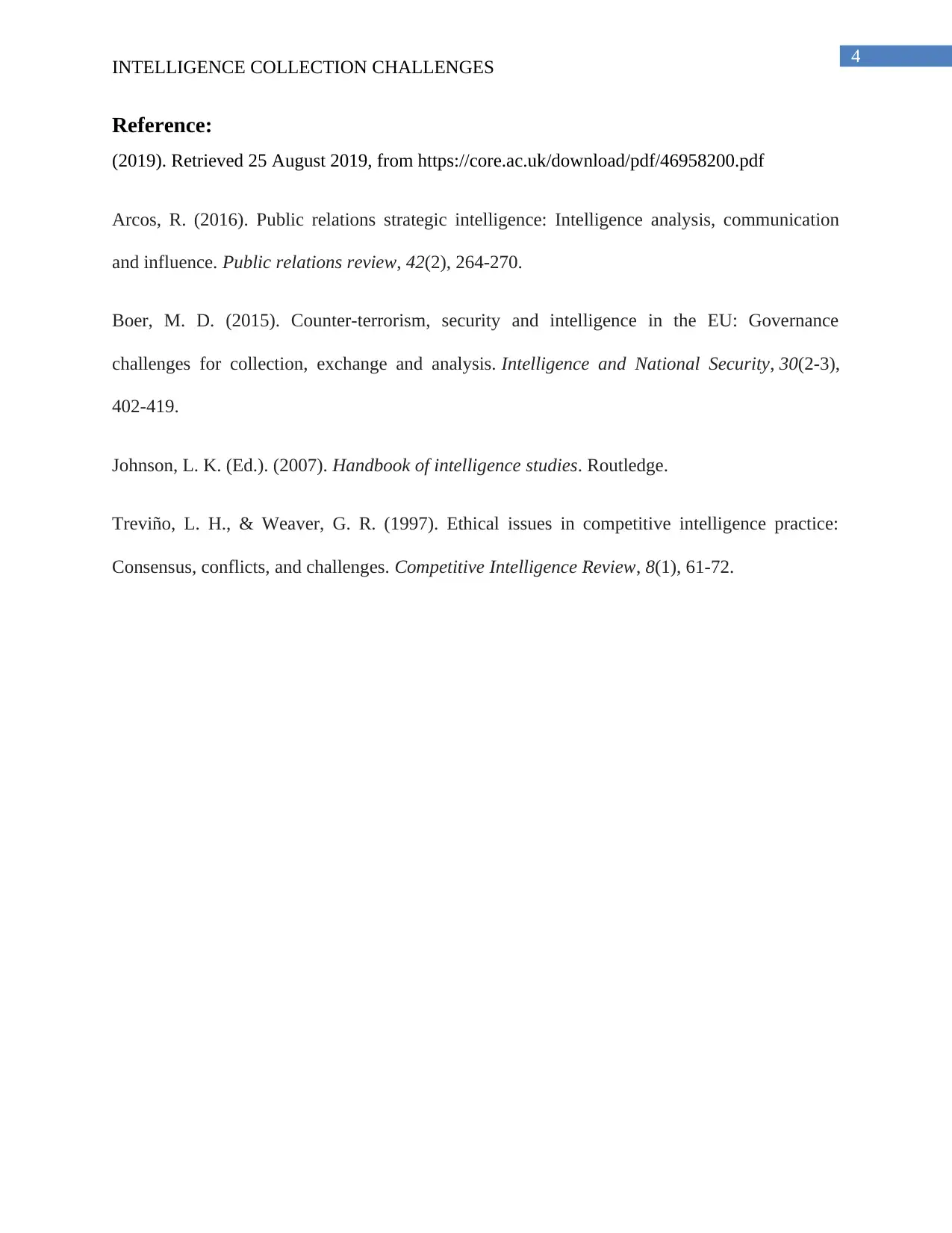University Assignment: Intelligence Collection Challenges Report
VerifiedAdded on 2022/09/14
|7
|873
|13
Report
AI Summary
This report delves into the multifaceted challenges of intelligence collection, with a specific focus on fusion centers and information sharing environments. It explores the evolution of fusion centers as vital tools for data sharing among various law enforcement agencies and the intelligence community, highlighting their role in information exchange regarding threats. The report examines the involvement of diverse institutions and personnel in the intelligence function, including the ethical considerations surrounding personal information access and the potential for ethnic profiling by law enforcement agencies. It also addresses the importance of data security controls within fusion centers and their impact on the civil liberties of American citizens. The report emphasizes that while fusion centers are emerging and improving, there are challenges related to maintaining a balance between security and individual rights. The report concludes with a reference to the challenges faced by intelligence and law enforcement agencies in protecting American citizens from both domestic and foreign threats.
1 out of 7














![[object Object]](/_next/static/media/star-bottom.7253800d.svg)